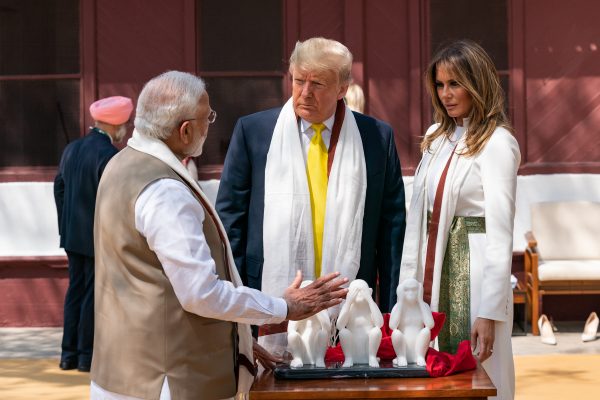
Updated
Nov 02, 2024, 12:04 AM
Published
Nov 01, 2024, 11:40 PM
BEIJING - China has maintained that it is still a developing country amid growing international pressure for the world’s second-largest economy to contribute to the United Nations’ climate finance fund for poorer countries.
This assertion comes ahead of the COP29 climate talks from Nov 11 to 22, where the world’s governments will be negotiating how much developed nations should contribute to global climate assistance.
Chinese government officials reiterated at a press briefing on Nov 1 that the world’s biggest emitter of planet-warming carbon dioxide is a developing country, citing that in 2023, 477 million or one third of its population of 1.4 billion, was rural.
“We are part of the Global South,” said Mr Xia Yingxian, director-general of the climate office at China’s Environment Ministry, referring to a set of countries considered as developing nations.
He said that China, which also leads the world in renewable energy installations, will be fielding 90 people to the UN climate meeting.
China is expected to come under fire at the event at Baku in Azerbaijan for asserting its status as a developing country, which exempts it from contributing to the UN’s pot to help poorer nations curb gas emissions and deal with the worsening extreme weather.
In September, the European Union’s commissioner Wopke Hoekstra told Bloomberg that if China could go to the moon, it should be able to pay more for climate action.
The chair of the Alliance of Small Island States Pa’olelei Luteru has also called for the Asian economic powerhouse to make a contribution to international climate finance, The Washington Post reported end October.
In 2009, developed countries agreed that from 2020 to 2025, they would contribute a total of US$100 billion (S$132.5 billion) each year in such funds.
At COP29, wealthy nations are expected to set a new global climate finance target for after 2025.
Developing countries, excluding China, will need about US$2.4 trillion a year by 2030 to meet climate goals, according to a 2023 assessment commissioned by the UN. This amounts to a fourfold increase from current levels.
Mr Xia said he hopes that developed countries will continue to fulfil their obligations and lead efforts to raise more funding, describing this as “a golden key in unlocking outcomes to COP29”.
When asked about how China is helping poorer nations with the climate crisis, Mr Xia said China is committed to continuing cooperation with the Global South, having signed agreements with 42 countries.
According to a report by US-based World Resources Institute, climate-related finance from China, on a voluntary basis, amounted to US$45 billion from 2013 to 2022, or roughly 6 per cent of total climate finance from developed countries during the same period.
With the US presidential election just days away, Mr Xia said China hopes the winning candidate will maintain the “stability and consistency” of its climate policy with China, which includes cooperating over methane emissions.
He said: “The response to climate change requires concerted efforts. No country can emerge unscathed, no country can deal with it alone”.
Republican candidate Donald Trump is expected to withdraw the US from the Paris climate agreement again – having done so in his first term as president – if he wins.
Ms Belinda Schaepe, China policy analyst at the Finland-based Centre for Research on Energy and Clean Air, said pressure for China to provide climate finance has mounted over the past few COPs as its emissions keep growing, even as it is classified as a developing country in the Paris Agreement, which underpins the global fight against climate change.
As the largest emitter, China’s current carbon emissions trajectory would leave little room for other developing countries if global warming is to be limited to 1.5 deg C above pre-industrial levels, a threshold agreed in the Paris Agreement.
Said Ms Schaepe: “But many parties find it difficult to open up the discussion again, as it will lead to a discussion involving other developing countries, including those in the Gulf region, which have also significantly developed per capita.”
She noted that while China has pumped in funds to finance climate-related projects in other countries, such as through its South-South cooperation fund, details are scant for these projects.
She added: “That’s why there have been a lot of calls for it to contribute on a multilateral level like COP29, which will help with more transparency.”
Analyst David Fishman said China can be considered a developing nation, given that its per-capita energy consumption is still a fraction of the average in the Organisation for Economic Cooperation and Development (OECD), a forum of mostly rich nations.
“China’s still a developing nation overall, although it’s unlikely to be convincing to international audiences who may only be familiar with top-tier cities like Shanghai or Beijing and demand (that) China be treated like a developed nation in terms of international climate funding obligations,” said Mr Fishman, a senior manager specialising in China’s power sector at the Lantau Group, an economic consultancy.
A possible way forward could be for China’s wealthier provinces to be treated as developed, and for obligations to be calculated accordingly, he added.

 By The Straits Times | Created at 2024-11-01 16:57:40 | Updated at 2024-11-01 20:32:42
4 hours ago
By The Straits Times | Created at 2024-11-01 16:57:40 | Updated at 2024-11-01 20:32:42
4 hours ago



